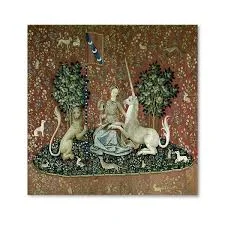Be Ahead of All Parting
Dear All,
Rilke leads us into the Great Life in his own way. Like many others, he invites us to non-duality, to merger, but he does it with a focus on agency. He wants us to be active as we participate in and even co-create this open world. So unity arises, not as a passive discovery, but as an achievement—almost an alchemical procedure.
As we discussed on Tuesday, Rilke does not shy away from loss. He doesn’t falsely console. Yet he finds a way to rejoice with mathematical precision. Here’s our text for next week:
Be ahead of all parting, as if it were behind you,
like the winter, which even now is passing.
For among winters there’s one winter so endless
that to winter through it is a triumph of the heart.
Be forever dead in Eurydice. Climb back more singingly,
climb back more praisingly, into the pure relationship.
Be, here, among the disappearing, in the realm of the transient,
be a ringing glass that already shattered in ringing.
Be. And know at the same time the need to not be --
the endless ground of your inner oscillation.
Fully complete it this unique time.
To what’s familiar, as much as to the silent and veiled
storehouse of nature’s fullness,
count yourself in, ecstatic, and cancel the sum.
Rilke, Sonnets to Orpheus II, 13
Orpheus, to whom Rilke’s Sonnets are dedicated, was the first singer. He played the lyre so beautifully he made the animals tame, he made the rocks turn into flowers, and he made the gods themselves weep in musical transport. When his wife Eurydice died, Orpheus could not bear it. He was advised to charm the dogs of Hades with his singing, descend into the underworld, and return with Eurydice. The gods promised him this would work, but on one condition. When he climbed back from the underworld, he had to walk in front of Eurydice and not look turn around until both had reached the earth again. All went well until, when Orpheus had just crossed the threshold back to earth, he was so anxious to see her that he glanced back to make sure she was following. The agreement was broken, and she sank down again to Hades. He had lost her again, this time forever.
The poem begins with loss, and ends with a kind of matter and antimatter collision that annihilates everything in joy. How is this possible? To feel the exact answer is our task next Tuesday.
All blessings to all,
Michael




